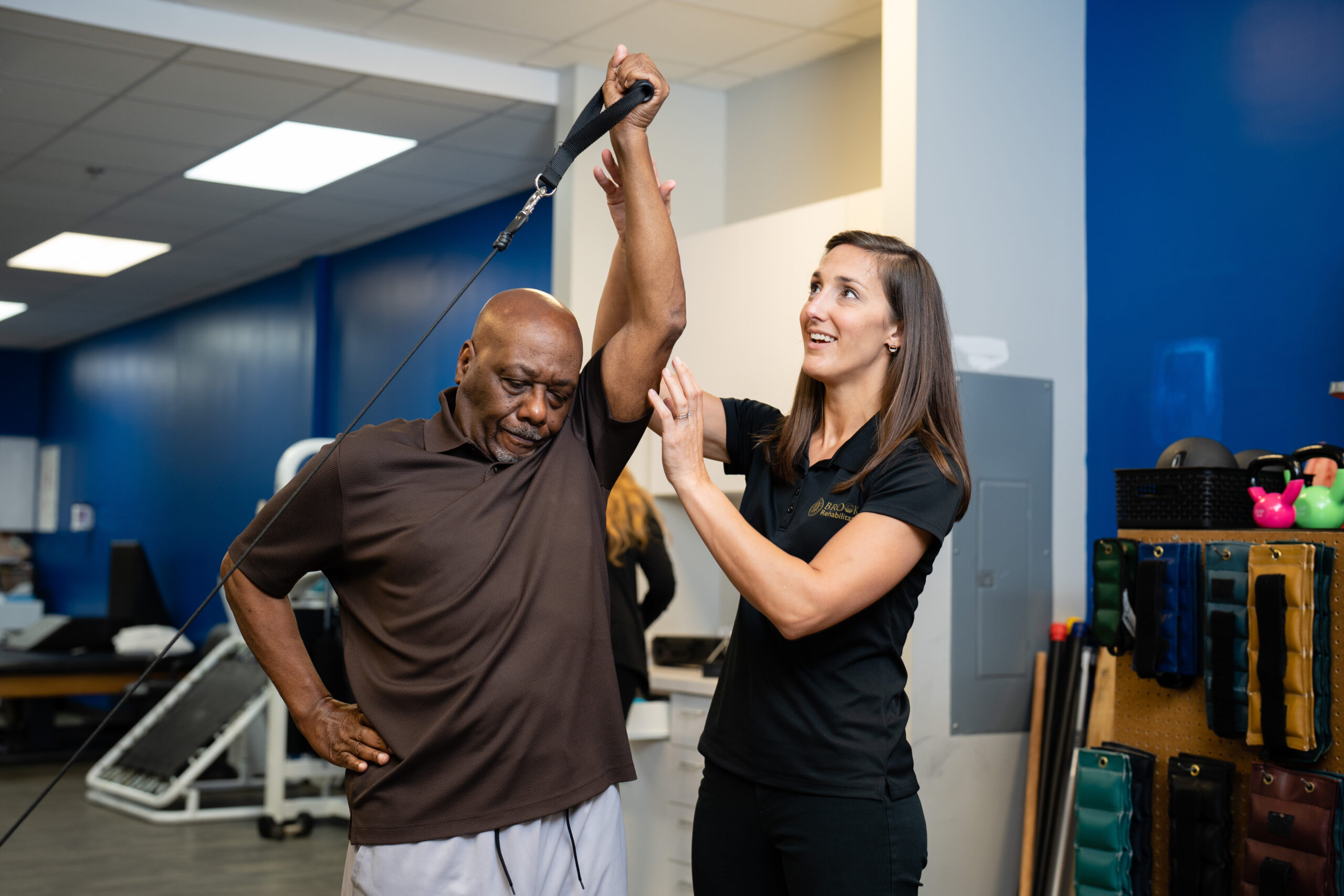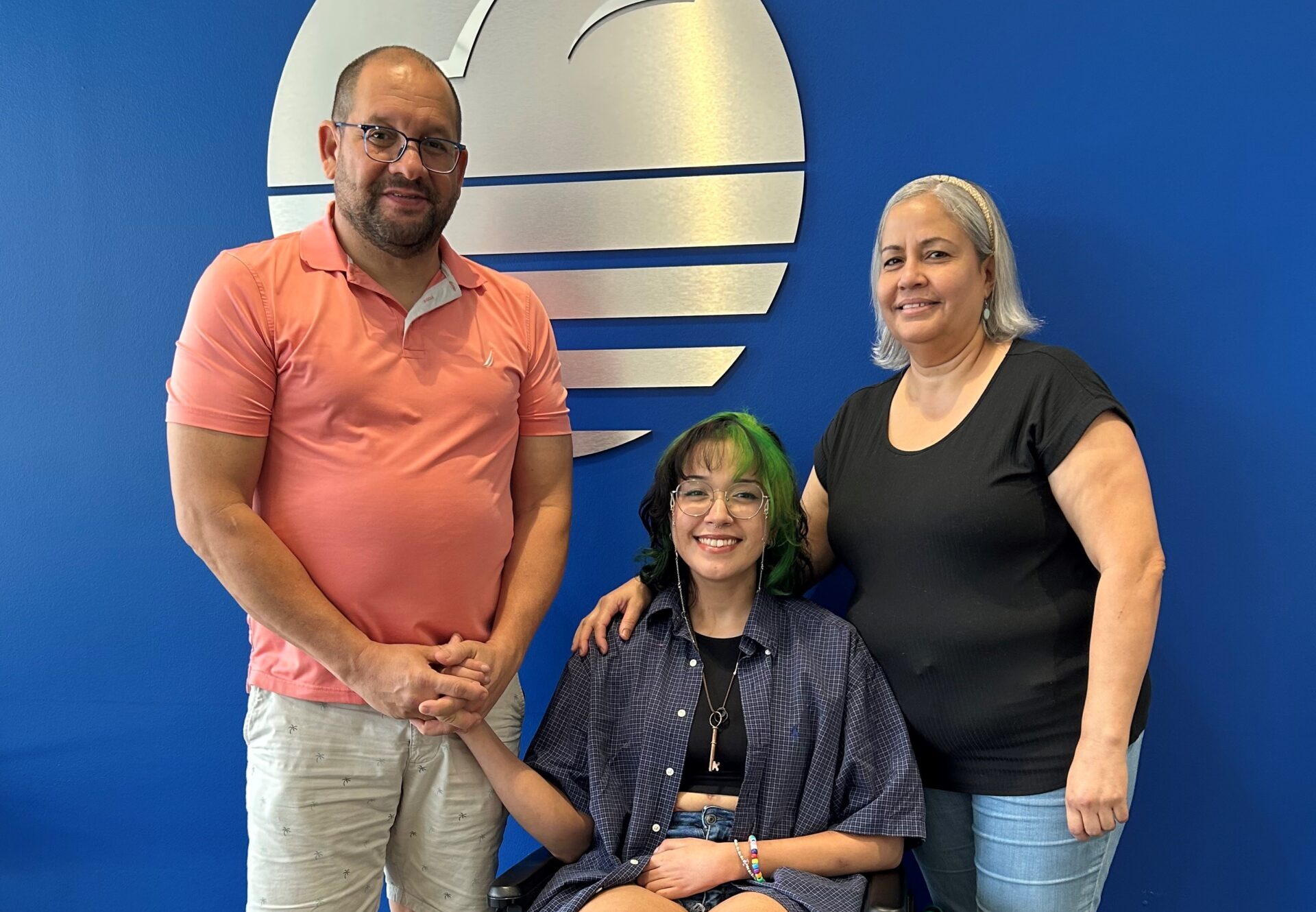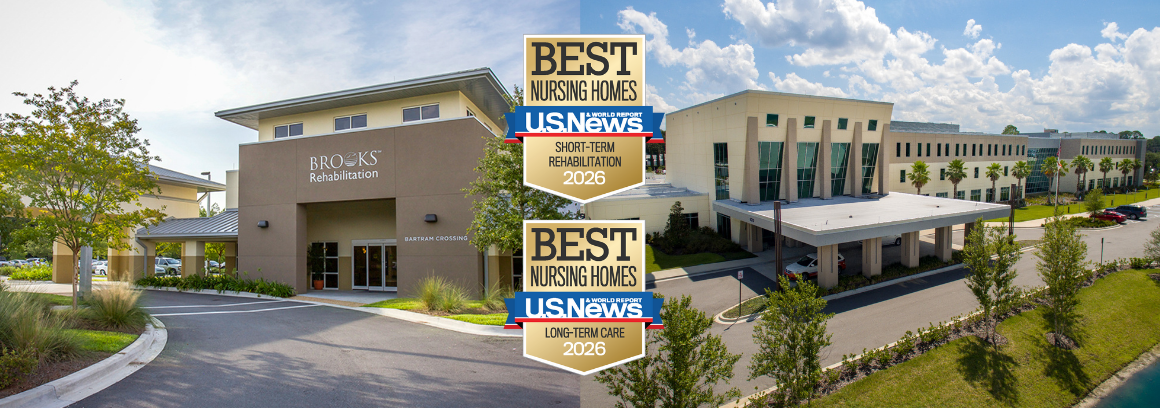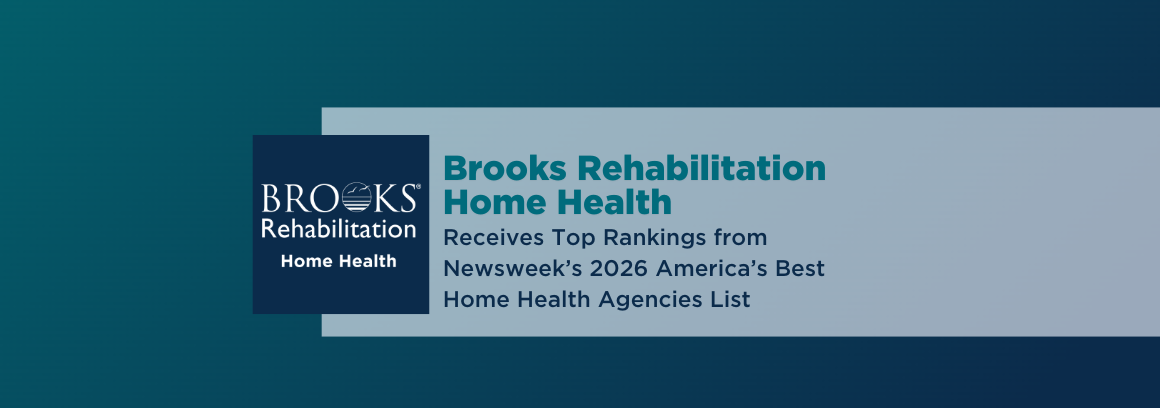What Is Frozen Shoulder?
Frozen shoulder makes moving your shoulder painful and difficult. It happens when tissue surrounding the joint becomes tight and inflamed. Symptoms often develop gradually and may take time to go away. Most people get better with non-surgical treatments like physical therapy.
What Causes Frozen Shoulder?
Frozen shoulder sometimes appears without a clear reason. But certain health factors and life events may raise your chances of developing it.
These include:
- Diabetes or other long-term health issues
- Hormonal changes like menopause
- Keeping your shoulder still for too long after surgery
- Joint inflammation, such as from arthritis
- Previous shoulder injury
- Recovering from a stroke, which can limit shoulder movement
- Thyroid condition
Frozen Shoulder Symptoms
Frozen shoulder can cause pain, stiffness and difficulty moving your shoulder.
Common symptoms include:
- Dull, aching pain in your shoulder or upper arm
- Difficulty reaching overhead or behind your back
- Gradual loss of shoulder movement
- Increasing stiffness, especially in the morning
- Muscle weakness
- Pain that worsens at night or with activity
- Shoulder feeling stuck or locked when you try to move it
Treatments
Frozen shoulder often improves with physical therapy, especially when you work with experienced providers like the ones at Brooks. You receive services from therapists specializing in orthopedic issues, such as frozen shoulder. We use a variety of methods to reduce pain, improve mobility and help you return to your favorite activities.
Physical therapy for frozen shoulder may include:
- Dry needling: Therapists use thin needles to release tight muscles around your shoulder and upper back to reduce tension and improve movement.
- Manual therapy: We use hands-on techniques to improve mobility of the soft tissues and the joint, and guide your shoulder through safe, pain-free movement.
- Mobility, range of motion, stretching and strengthening exercises: Therapists lead you through movements that gradually increase how far and how smoothly your shoulder moves. These exercises also help loosen tight tissue, strengthen your shoulder and support long-term flexibility.
- Neuromuscular electrical stimulation (NMES): We apply light electrical signals to activate muscles that may have weakened due to trying not to use your shoulder.
Why Choose Brooks Rehabilitation for Frozen Shoulder Treatment?
Our experienced team of orthopedic physical therapists offers several advantages that make a difference in frozen shoulder recovery.
Highlights of our program include:
- Easy Access, Close to Home: With more than 50 physical therapy locations across Florida, Brooks makes it easy to find care close to home. Many clinics offer extended weekday hours, so you can schedule visits before or after work. And you might not need a referral to start treatment, depending on your insurance. Direct access to our physical therapists can help you feel better sooner. Become a patient.
FAQs About Orthopedic Physical Therapy for Frozen Shoulder
What’s the difference between frozen shoulder and a rotator cuff injury?
Frozen shoulder typically causes stiffness and a gradual loss of movement. Rotator cuff injuries feel more like sharp pain with certain motions. If you are unsure of your diagnosis, an orthopedic physical therapist assesses your shoulder and guides you toward the right treatment.
Is physical therapy all I need for frozen shoulder, or will I eventually need surgery?
Physical therapy is often very effective. Most people achieve their treatment goals without surgery. At Brooks, we use targeted techniques like manual therapy and stretching to restore movement and ease pain. Surgery is typically only necessary if symptoms don’t improve over time.
Can frozen shoulder come back after treatment?
Frozen shoulder typically doesn’t come back in the same shoulder. However, it can sometimes affect the other shoulder. Risk factors like diabetes or keeping your shoulder still for too long raise this risk. Physical therapists at Brooks show you how to keep your shoulder moving and lower the chances of it happening again.
Request Care at Brooks
Find out more about becoming a patient and learn about orthopedic physical therapy for frozen shoulder.Latest News and Health Resources
Education and guidance to support your recovery
From Immobility to Possibility: Izzy’s Determination to Reclaim Her Creative Life Following Transverse Myelitis
Last Christmas was supposed to be a time of joy and celebration for Isabel “Izzy” Quezada. Instead, what began as a common case of influenza A would challenge everything she...




